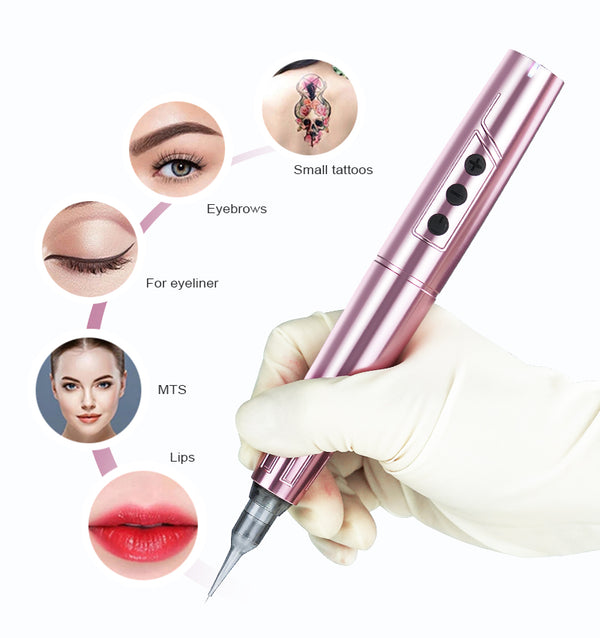Unraveling Tattoo Itch: Secrets to Soothing Your Skin Like a Pro!
Tattoo itch is a common yet often frustrating experience for many tattoo enthusiasts. Whether you've just gotten inked or have a piece that’s been on your skin for years, the discomfort of an itchy tattoo can be all too real. This sensation can detract from the beauty of the artwork and even lead to scratching, which can jeopardize the tattoo's integrity. Understanding the root causes of tattoo itch and exploring effective relief methods is essential for maintaining both the appearance of your ink and the health of your skin. This article will delve into the reasons behind tattoo itch and provide you with practical strategies to soothe your skin like a pro.

Understanding Tattoo Itch: Causes and Symptoms
The itchiness associated with tattoos can arise from several factors. One primary cause is the natural healing process of the skin. When you get a tattoo, the needles create thousands of tiny wounds, triggering your body’s healing response. As the skin repairs itself, it may become inflamed and dry, leading to that irritating itch. Additionally, individual skin sensitivity plays a significant role; some people are more prone to itchiness due to sensitive skin or allergies to the ink or the needle used during the tattooing process.
Environmental factors also contribute to tattoo itch. Changes in weather, exposure to sun, or contact with irritants like harsh soaps or chemicals can exacerbate the problem. Common symptoms accompanying tattoo itch include redness, swelling, and dryness. It's not uncommon for friends to share their experiences of dealing with itchy tattoos, often recounting how they initially mistook the itch for an allergic reaction, only to realize it was simply part of the healing journey. Understanding these causes can help you manage your expectations and take proactive measures for relief.
Effective Tattoo Itch Relief Strategies
Relieving tattoo itch requires a combination of immediate and long-term strategies. First and foremost, maintaining a consistent skincare routine is crucial. Keeping the tattoo moisturized with fragrance-free lotions or creams can help alleviate dryness, which is a common trigger for itching. Hydration is equally important; drinking plenty of water helps keep your skin hydrated from the inside out, promoting healing and reducing the urge to scratch.
For immediate relief, consider using cold compresses on the affected area. This can numb the itch temporarily and reduce inflammation. Additionally, over-the-counter anti-itch creams can provide quick relief. However, it's vital to choose products specially formulated for sensitive skin to avoid further irritation. Friends have shared that incorporating gentle exfoliation into their routine has also helped, as it removes dead skin cells and promotes smoother healing. Remember, patience is key; while some methods may offer quick relief, long-term strategies will yield the best results.
Natural Remedies for Tattoo Itch
If you prefer natural remedies, several options can help soothe tattoo itch effectively. Aloe vera is renowned for its healing properties and can provide immediate cooling relief when applied directly to the tattoo. Its anti-inflammatory benefits help calm irritation and promote skin healing. Coconut oil is another excellent option; its moisturizing properties not only keep the skin hydrated but also have antibacterial benefits, reducing the risk of infection.
Oatmeal baths are particularly soothing for itchy skin. Simply grind oats into a fine powder and add them to a lukewarm bath. Soaking in this mixture can help reduce inflammation and provide a calming effect on the skin. Always remember to patch-test any natural remedy before applying it to your tattoo to ensure there’s no adverse reaction. These remedies, coupled with a good skincare routine, can make a significant difference in managing tattoo itch.
When to Seek Professional Help
While tattoo itch is often a normal part of the healing process, there are times when it may be necessary to seek professional help. If you experience persistent itching that does not improve with home remedies, or if you notice signs of infection such as increased redness, swelling, or pus, it's essential to consult a dermatologist or your tattoo artist. They can evaluate your tattoo and provide guidance on appropriate treatments.
Additionally, if you suspect an allergic reaction to the tattoo ink or materials, seek professional advice promptly. Friends who have faced similar situations found that timely consultations not only alleviated their symptoms but also helped them understand their skin better. Being proactive about your skin health is crucial, especially after getting a tattoo.
Maximizing Comfort for Your Tattoo Experience
In conclusion, understanding the causes of tattoo itch and implementing effective relief methods can significantly enhance your tattoo experience. From maintaining a proper skincare routine to exploring natural remedies, there are numerous ways to soothe your skin and alleviate discomfort. Remember, it’s essential to listen to your body and recognize when to seek professional help. By being proactive and educated about your skin health post-tattoo, you can ensure that your ink remains a source of pride rather than discomfort. Take care of your tattoos, and they will continue to tell your story beautifully.






